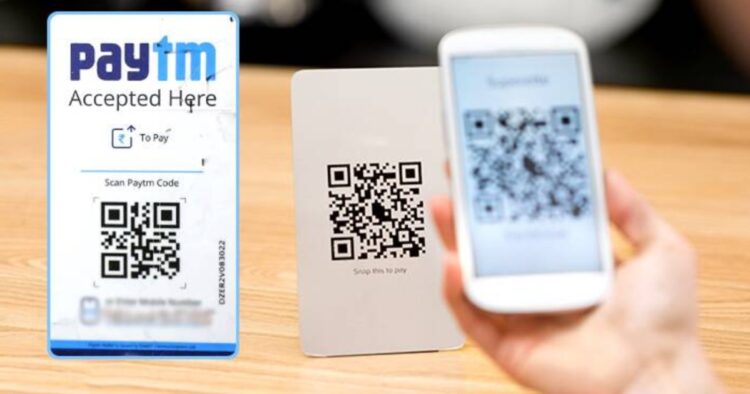Paytm, one of Bharat’s leading fintech companies, saw its shares rise by 5% on February 20th, buoyed by reassurances from founder and CEO Vijay Shekhar Sharma. Sharma’s statement came amidst concerns over strict restrictions imposed by the Reserve Bank of India (RBI) on the company’s banking operations, particularly affecting its QR code and soundbox facilities.
In a message on social media platform X (formerly Twitter), Sharma affirmed that Paytm’s QR code, soundbox, and EDC (card machine) services would continue uninterrupted even after the March 15th deadline set by the RBI. He cited the RBI’s latest Frequently Asked Questions (FAQs), specifically pointing to clarification provided in point #21, which assured the continuity of these services beyond the deadline.
The RBI confirmed that merchants, a significant majority estimated at around 80% according to Paytm management, utilizing Paytm’s QR code or soundbox linked to accounts with other banks could continue to use these services beyond March 15th.
Following Sharma’s announcement, Paytm shares surged to trade at the upper circuit at Rs 376 on the National Stock Exchange (NSE) at 9:16 am. This positive movement offered a respite for investors amidst a turbulent period, with the stock having experienced a 41% decline since the beginning of the year.
However, financial analysis firm Jefferies India opted to discontinue its rating on Paytm until the regulatory uncertainties surrounding the company settle down. The brokerage shifted its rating from ‘underperform’ to ‘not rated,’ projecting a 28% year-on-year decline in FY25 revenues for Paytm, leading to concerns about cash burn.
Jefferies attributed this revenue decline to the RBI’s FAQs indicating the wind-up of certain business aspects of Paytm Payments Bank Limited (PPBL), while allowing other operations to continue. The brokerage highlighted potential risks related to user and merchant retention, revenue generation, and cost management.
Despite challenges, Paytm has undertaken strategic moves, including shifting its nodal account from PPBL to Axis Bank. This adjustment aligns its business model more closely with that of other payment service providers like PhonePe, Google Pay, and Pine Labs. Jefferies suggested that Paytm might utilize its substantial cash reserves of Rs 8,500 crores to retain customers and merchants amid the regulatory uncertainty.
Looking ahead, Jefferies emphasized the importance of regulatory clarity on crucial issues such as the handling of Virtual Payment Address (VPA) transitions for Paytm users and the outcome of investigations by the Enforcement Directorate. Additionally, government approval for Paytm’s subsidiary PPSL to operate as a payment aggregator will be a significant milestone in the medium term.
In the previous trading session, Paytm shares had also gained 5% following a partnership announcement with Axis Bank for merchant payment settlements, signaling the company’s continued efforts to navigate regulatory challenges and maintain its market position.

















Comments